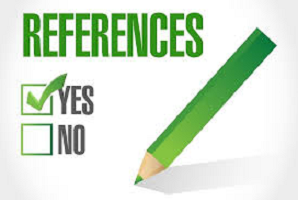When you’ve found the right candidate for the role, it’s the best feeling. You’re excited, eager to get the offer out, and hoping that your competition doesn’t snag them before you can lock them down. But just as you’re about to celebrate, you remember one last step in the hiring process: Reference Checks.
The topic of reference checks comes up a lot in the hiring world. Some hiring managers want to “go with their gut” when they meet the perfect candidate, but others swear by doing thorough checks. So, which way is the right way? Reference checks are an important part of the hiring process, so let’s explore the topic a bit deeper and discuss just how important they are.
What’s a reference check when hiring?
A reference check is conducted during the hiring process to verify information given to you by a candidate. In its simplest form, it’s ensuring that facts about the candidate (employment history, titles, length of employment, education) are correct. It can also include searching personal information (with the candidate’s permission) about the possible existence of a criminal record, educational achievements, driver’s license status, and credit history – depending on the industry and role that they will be engaged in. Many services now exist to allow much of this personal information to be provided by the candidate themselves through services such as Sterling Talent Solutions www.sterlingtalentsolutions.ca.
But, reference checks are also used to assess the candidate’s skills and to get a feel if they’d be the right fit for your company. Reference checks allow you to ensure that the candidate you are hiring is giving you all of the correct information about their past. You can ask questions to the candidate’s references in order to get a feel for the candidate’s working style, management style, or anything else that may be relevant to the role. It’s a way to ensure that all of the skills, responsibilities, and qualifications that the candidate listed on the resume are, in fact, true.
Which candidates should I conduct a reference check on during the hiring process?
 You want to do a reference check on every candidate you’re considering hiring, no matter how good the candidate may seem. A person who looks great on paper, and can navigate an interview with skill, may not be as effective as they appear. When you interview a candidate, you’re taking their word as the truth and unfortunately, some candidates aren’t always the most forthcoming.
You want to do a reference check on every candidate you’re considering hiring, no matter how good the candidate may seem. A person who looks great on paper, and can navigate an interview with skill, may not be as effective as they appear. When you interview a candidate, you’re taking their word as the truth and unfortunately, some candidates aren’t always the most forthcoming.
Any truly great candidate is going to have excellent references – so verifying that fact through the reference checking process should be easy. On the flip side, not everyone interviews well and reference checks can help gauge whether or not you might be about to overlook a great employee. Some people can be nervous during interviews, or shy, or can be chatty – it doesn’t mean they won’t be a great person to have on your team. Sometimes calling references will turn a “maybe” candidate into a “yes”, depending on the situation.
During the hiring process, you should absolutely do a reference check on any candidate you are thinking of making an offer to, just in case any red flags pop up.
What reference should a candidate be asked to provide during hiring?
Ideally, candidates should be asked to provide four references (two former supervisors who managed them, one co-worker and, for candidates who will be in a management role, one person who reported to them in the past). Usually, candidates are understandably unwilling to provide references from an organization where they are currently employed. Sometimes, where a candidate has had long service at an organization, references from previous employment may be difficult to find, so some flexibility may be required in the number and type of references required.
What do I ask when I am hiring?
 Asking the right questions is a vital part of doing reference checks. You want to make sure that the referee is giving you information that will actually educate your hiring decision, so make sure to take the time to plan your questions.
Asking the right questions is a vital part of doing reference checks. You want to make sure that the referee is giving you information that will actually educate your hiring decision, so make sure to take the time to plan your questions.
Don’t ask closed-ended questions (e.g. anything that can be answered with a simple “yes” or “no”). Also, when checking facts, don’t feed them the information – for example, ask “What dates were the candidate employed? What was his last title?” instead of “Was he employed from January 2008 until December 2011? Was his title Assistant Manager?”.
Also, make sure you get a feel for how the candidate works with others. If you’re thinking of hiring a candidate for a managing or supervisor position, this is even more important. Be specific in your line of questioning and ask about situations.
Some example questions:
- Tell me about a time he had to deal with an employee with poor performance?
- How would you describe her management style?
- Tell me about a time he had to deal with a stressful situation? How did he handle it?
- Does she take feedback well? Tell me about a time she had to receive some not so great feedback? How did she respond?
- Has he ever been in a situation where he had to make a quick decision under pressure? Give me an example and what the outcome was?
The more specific, the better! Asking about examples of real situations will provide details that can be very revealing. A good way to end the call is with, “Given the chance, would you like to work with [candidate] again?” and see how they respond. A supportive reference will answer with no hesitation.
How to tell if a reference check is good or bad
 Most of the time, you’ll definitely know when a reference check is positive or negative. If you ask good, pointed questions you will get the true story. However, a less than enthusiastic response to a question that is “sort of” positive is really a negative response from someone who is trying to be nice. The phrase “damned with faint praise” comes to mind.
Most of the time, you’ll definitely know when a reference check is positive or negative. If you ask good, pointed questions you will get the true story. However, a less than enthusiastic response to a question that is “sort of” positive is really a negative response from someone who is trying to be nice. The phrase “damned with faint praise” comes to mind.
One poor reference may not be fatal and needs to be understood in terms of the context. It certainly is a red flag when hiring though, and needs to be investigated as to whether the poor response was truly a result of some failing on the part of the candidate or due to a situation truly beyond their control. This may require additional reference calls to the same organization to come to a conclusion.
Make sure to do your research on the referees as well, to ensure that the candidate has provided you with people who really were in the roles stated and are not contrived. LinkedIn can be very helpful here.
So, how important are reference checks to the overall hiring process?
Extremely important! While it would be great to live in a world where we could take everything at face value, in the hiring world it’s simply not the case. A lot of candidates may seem amazing – and you may even think they’re an amazing fit – but a reference check will reveal if they’re a good fit for YOU.
Onboarding an employee is a big investment, so you want to make sure you do your due diligence before hiring someone who wows you. A reference check will save your company time and money in the long run, so take the time to call those references and find the perfect hire.
An example of the full hiring process including reference checks can be found here on our website:

